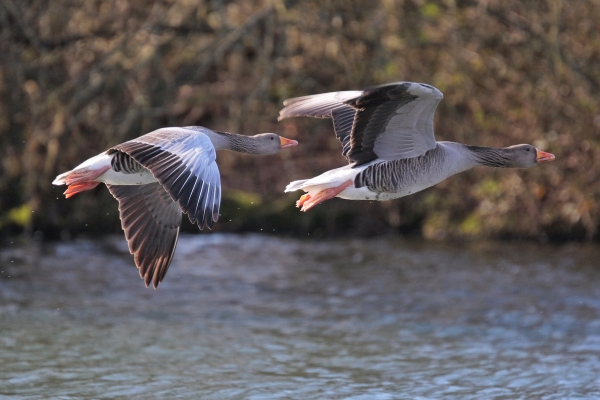
Breaking down the myths on scientific research
Heather Warrender and Sophie Stafford challenge some of the myths around taking part in scientific research related to shooting.
Get information on the legal shooting season for mammals and birds in the UK.
Apply for funding for your project or make a donation today
Comprehensive information and advice from our specialist firearms team.
Everything you need to know about shotgun, rifle and airgun ammunition.
Find our up-to-date information, advice and links to government resources.
Everything you need to know on firearms law and licensing.
All the latest news and advice on general licences and how they affect you.
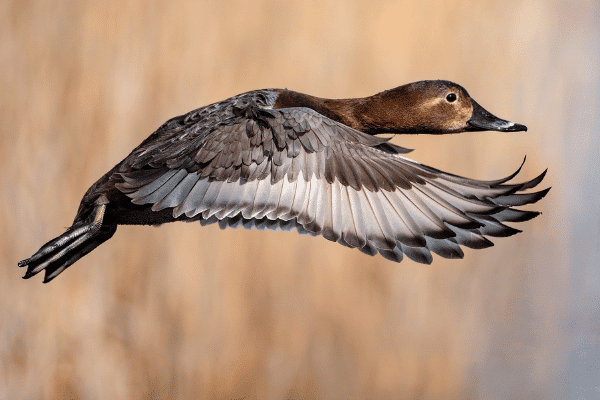
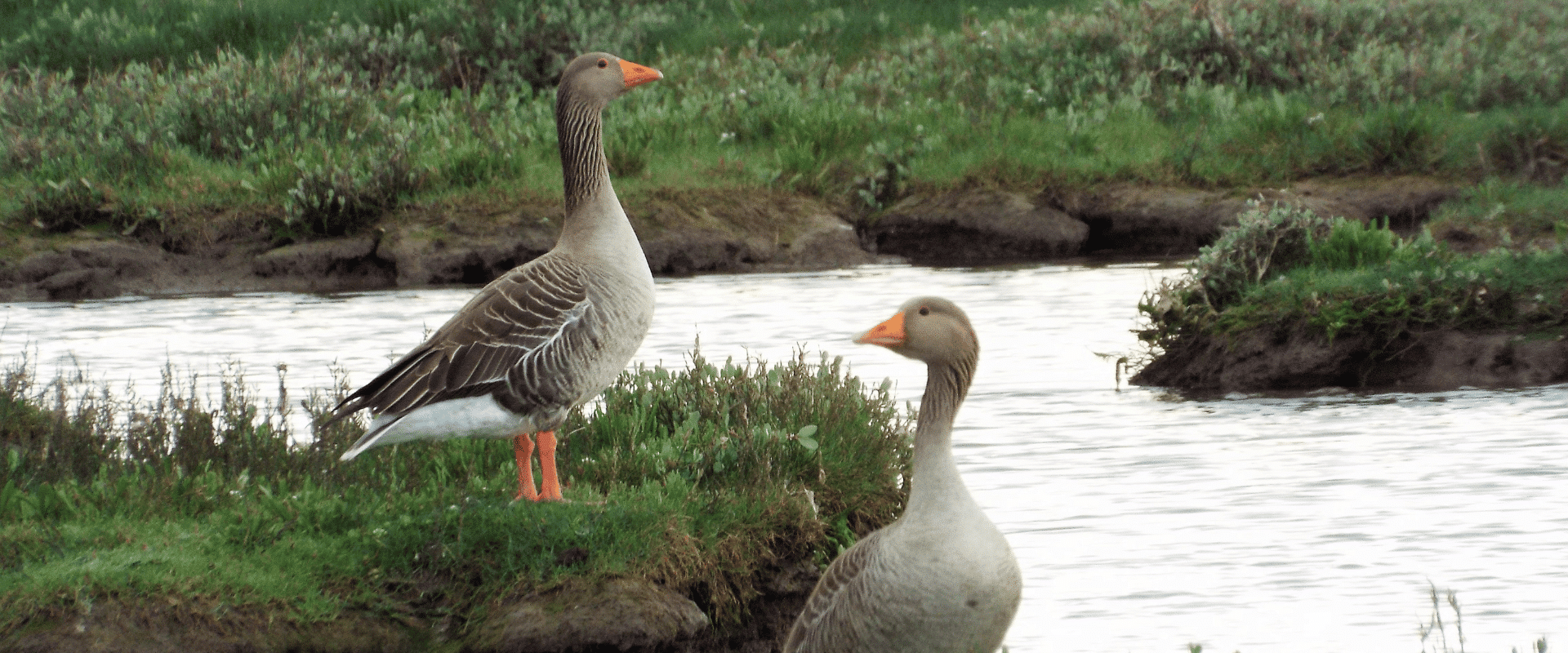
Tim Webster was the lucky winner of last year’s Lindisfarne auction, winning three days of guided wildfowling at Lindisfarne with food and accommodation for two Guns, while also supporting wildfowling activities for our Young Shots.
It was his first time on the estuary, so he wanted to share his experience for anyone thinking of bidding or trying out wildfowling for the first time.
After living in the Scottish borders all my life, I had heard stories from family friends who used to wildfowl on Lindisfarne in their younger years and, as a self-confessed countryside addict, it was always on my bucket list.
My lack of experience put me off organising a trip by myself, along with the fact that September for me comes in the middle of harvest before I migrate back to university.
The trip was an experience like no other. Heading to Lindisfarne, preconceptions of carrying out big bags full of hide-building equipment were quickly dismissed and the reason for bringing my father’s chest waders, once used for fishing the Tweed, became obvious.
The knowledge and excitement shown by the guides were oozing from the moment we met. We arrived in Lowick at around 3pm, which gave us plenty of time to kit up. The waders – a new form of shooting attire for me that I had never even worn before, let alone shot in – were hastily pulled on in eager anticipation of the evening flight.
We then loaded up the cars and headed to the causeway for a look with the binoculars. The first thing I noticed was the sheer abundance of life, species I hadn’t seen before that the guides could identify so confidently from miles away!
We split into two groups and after the flip of a coin, we decided who went where. With my gun and stick in hand, I headed north of the causeway.
Eager in anticipation and nestled into a gully we waited, watching wigeon flying across the horizon. I remember looking at the sunset, soon realising that the wildfowl aren’t the only thing these countrymen come out for. Sitting out on the mud, just like sitting in woodland, you can learn so much about a species by just watching and listening.
That evening we shot three wigeon, a new species for me, which is always an important note for the game book. The style of shooting is nothing like I have experienced before. Trying to shoot lying down or kneeling while stuck in the mud was very new and I think the guides will admit it’s a technique that I need to work on! After last light we made our way back to the cars for our well-earned supper.
The next morning, we left the B&B nice and early and, after slipping on the wet muddy waders, we made tracks.
As a keen pigeon shooter, my idea of a hide was always hide poles, nets and as much foliage as possible, so the “lay on your back or front, or in a way that you can shoot in the grass” style of hide was a very strange concept.
Listening to teal whistle just meters overhead, all I could think was: how on earth I will have the time to sit up, mount the gun and pull the trigger before the ducks, which fly like Spitfires, have turned a wing and are out of range. Despite drawing a blank this morning, I will always remember the one teal that flew so close to me I could see every colour on every feather and in the blink of an eye it was gone.
The following day brought wind and rain, not English rain but Scottish wind and rain. Thoughts of a duck were few and far between, in fact, that morning the gun was not far from the slip for very long.
Blowing 50 miles an hour, with sidewards rain, the wind was wild. Although there were no ducks, it was amazing to be out, to see the power of the waves battering the coastline. Luckily I stayed relatively dry in comparison to some who looked as wet as an otter’s pocket when we got back to the hotel!
It was safe to say that the breakfast was much appreciated that morning and copious quantities of tea and coffee were drunk in an attempt to warm up. The weather stayed ferocious all day, so we had a quiet morning and returned to the mud for an afternoon tide flight. Lots of wigeon were moving but they evaded us again.
The wind kept the duck moving low, but another wildfowler who was knocking down the wigeon further up the shore kept pushing ducks off their flight line. This was probably a good thing because he was clearly an accomplished wildfowler and a very impressive shot!
Overall, the trip was a fantastic experience and one that will be remembered for years to come. I think wildfowling takes field sports back to what they once were. A skill passed down through generations, learning to outwit your quarry, not shooting vast numbers and forgetting the birds that you’ve shot. The feeling of shooting enough to take home and have for supper, with the added realisation that there may only be one shot, so make it count!
I will definitely be going out wildfowling again soon.
BASC’s wildfowling team, Newcastle Wildfowlers Association and the legendary Sir Johnny Scott are offering a lucky bidder and their friend the chance to experience a fully guided wildfowling trip on this iconic, Purdey Award-winning part of Northumberland’s coastline.
The lot includes accommodation at The White Swan Inn in Lowick for three nights, meals, and fully guided morning and evening flights for three days during the peak shooting time, all in the company of Sir Johnny Scott and his wildfowling friends.
This really is an opportunity not to be missed – competition will be high, as will the bids, so dig deep for this great cause.
The dates of 23-25 October are fixed due to the tidal requirements to make the most of the fantastic opportunity.
Estimate: £2,500 – £3,500
For further details, or to take part in the sealed bid auction which closes at noon on 30 August, please email the BASC wildfowling team here.
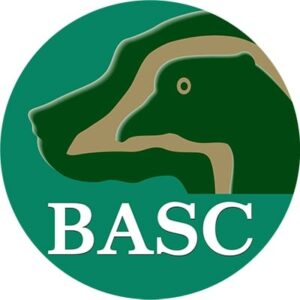

Heather Warrender and Sophie Stafford challenge some of the myths around taking part in scientific research related to shooting.
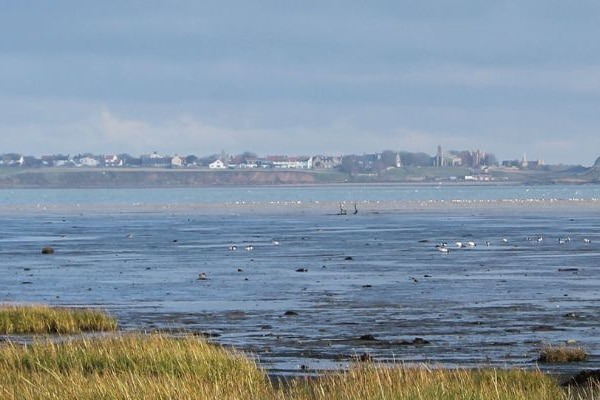
We hear from a BASC member who secured a dream wildfowling trip on Lindisfarne after bidding for the prize in BASC’s annual auction.
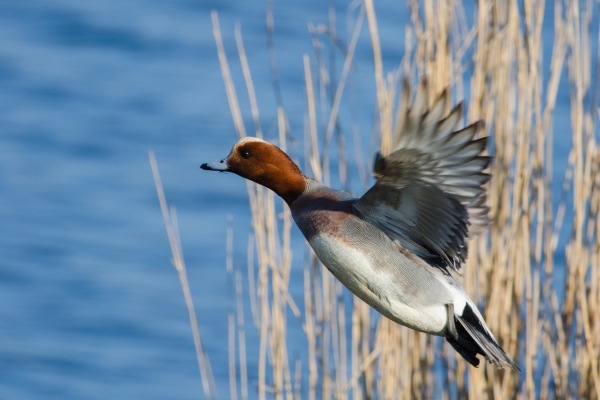
Data is vitally important in many aspects of our daily lives, including shooting and country pursuits, says Sophie Stafford.
Sign up to our weekly newsletter and get all the latest updates straight to your inbox.
© 2025 British Association for Shooting and Conservation. Registered Office: Marford Mill, Rossett, Wrexham, LL12 0HL – Registered Society No: 28488R. BASC is a trading name of the British Association for Shooting and Conservation Limited which is authorised and regulated by the Financial Conduct Authority (FCA) under firm reference number 311937.
BASC Direct Ltd is an Introducer Appointed Representative of Agria Pet Insurance Ltd who administer the insurance and is authorised and regulated by the Financial Conduct Authority, Financial Services Register Number 496160. Agria Pet Insurance is registered and incorporated in England and Wales with registered number 04258783. Registered office: First Floor, Blue Leanie, Walton Street, Aylesbury, Buckinghamshire, HP21 7QW. Agria insurance policies are underwritten by Agria Försäkring.
If you have any questions or complaints about your BASC membership insurance cover, please email us. More information about resolving complaints can be found on the FCA website or on the EU ODR platform.